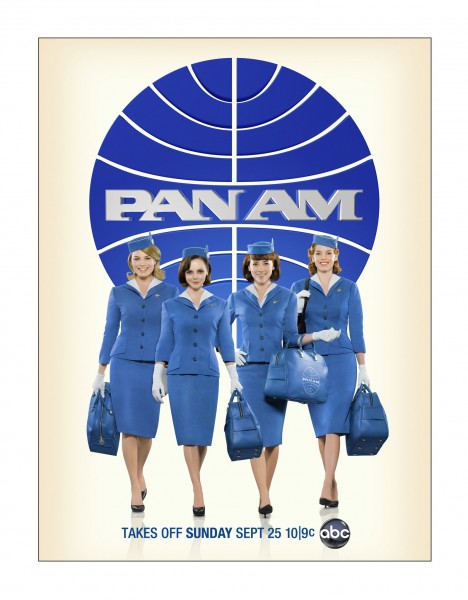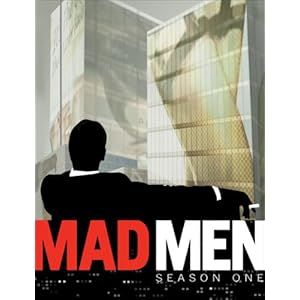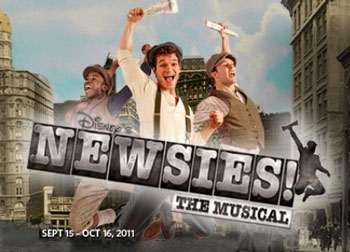 |
| Image source |
With Pan Am premiering this past Sunday night, the amount of shows which depict 1960s American in a highly nostalgic and stylized manner is now at three. Along with Mad Men and The Playboy Club, these shows nostalgize and simplify an era that was extremely complicated on a number of levels. Politically and socially the country was in a time of major upheaval. If we were to go by pop culture from the past 40 years or so, the 1960s seem like such a fun time with limitless drinking, great fashions, and sexual revolutionaries! What fun! Women were finding their voices and asserting themselves in what they thought would be a soon-to-be formerly male dominated world. The world was idealistic and excited for how they would emerge from the post-war era with free love and youth culture abounding.
In fact, the decade was fraught with violence and uncertainty. People who lived through it know that that this time was in fact was full of contradictions. Yes, all of the above is true, but in addition, student radicals fought for academic and political freedoms, the hippies tuned in, turned on and dropped out, and the yippies sought general anarchy. By the end of the decade three major political leaders had been assassinated in cold blood, the Vietnam War continued to rage on, and harder drugs were beginning to take hold. By 1970, the innocent and exciting naiveté the decade opened with had all but disappeared.
Nevertheless, pop culture and general parlance has decided that the 1960s was a better time that should be relived and revered. Currently, Pan Am, Mad Men and Playboy Club all assert what the 1960s were like to millions of people and neglecting so much else. There are some mentions of the outside culture. Mad Men did an episode where they mentioned that JFK was assassinated and Pan Am hints to the fact that Maggie (Christina Ricci) is someone who has radical tendencies. But rarely do these realities of the outside world permeate the general narrative of the shows.
 |
| Image source |
What I find the most interesting common thread that weaves through all of these shows is how gender roles are structured. Namely, how women are objectified and men are asserted as dominant and in control. They all highlight the abject inequality of the sexes. And the one woman who is the most active in transcending these roles is Peggy in Mad Men, and she's characterized as a lesbian or bisexual. In Mad Men, the men are the business leaders and the women are the sexualized. Peggy is not sexy at all; to be assertive, after all, is not sexy and must mean you have homosexual tendencies. In The Playboy Club, men are businessmen, politicians, or gangsters and women are sexualized. In Pan Am, the men are idolized and heroic pilots or law men and the women are sexualized.
Additionally, all the men of power assert themselves by sleeping around. This makes them sexier. Don Draper (Jon Ham) sleeps with anything that moves, neglecting his family and his marriage for filling his libido's needs. Nick Dalton (Eddie Cibrian) as an ongoing relationship with the head bunny and the stewardesses of Pan Am fly around the world sleeping with men who they think will care for them, but only realize they are being taken for fools when they meet the wives of these sleaze-balls. For the women in all of these shows, what excited them the most is sleeping with men of power. It feels as though it gives them power by proxy or they are able to attain a certain status based on the men they bed. Either way, it’s still the men who have the control and the women who only have their sexuality at their disposal.
Another interesting message that all of these shows send is that of the idealization of the "man's man". This was an era where men were men and women were women; gender roles were clear and the men were at top because they are strong, successful and deserved to be there. Women are generally frivolous and don't deserve a status of power.
So then, are the networks sending the message that this was a better time when gender roles were clear and defined? So much else seems so idealized that why wouldn't this message extend to that as well? For instance, in Pan Am flying is an actually enjoyable experience where the passengers were treated with respect and the airlines actually seemed to appreciate their business. By associating these "better times" with the way gender roles were laid out, the two ideals are thereby aligned.
 |
| Image source |
Pan Am tries to send the message that the stewardesses are the precursors to feminists as they are enlightened, independent women who know there is more to life than the roles they've been assigned by their parents and society. It even asserts that these stewardesses are a result of natural selection as they have escaped their otherwise eminent futures of wives and homemakers. True, they do have jobs which pay well and in which they get to see the world. Nevertheless, they are still objectified and subordinate to males and their passengers. From the strict regimenting of their uniforms (where Maggie was grounded for not wearing her girdle) to serving their pilots, the women, no matter how upwardly mobile the show wants to think, are still second class citizens.
The episode closes on a young girl watching with awe at the beautiful women in their neatly pressed uniforms and you can almost hear her thinking, "Mommy, that's what I want to be when I grow up." They have chosen this life to see the world, but is it really a freedom or independence? That image of the little girl directly contrasts the show’s open where a little boy is similarly staring at a plane about to take off. The difference, however, is that he gets a nod from a pilot and gets excited about his future as such. These don't seem like parallel hopes and dreams for the future to me. It's borderline offensive to pretend that these two dreams for the future are equal.
In fact, in many ways, this could not be further from the truth. Men and women, mostly in the younger generation were experimenting in all sorts of ways. Granted not all of these characters fall into the category of "youth" but they depict a rather narrow perspective of the era and don’t truly offer an honest perspective of the times. If the networks were really so keen on showing "the 60s" perhaps they should actually do so.
Ultimately TV is a revenue machine. If a show doesn’t get the ratings it gets canned, no matter how good it is. Programming (especially on network TV or basic cable) is a lot more consumable and relatable if the content is made more accessible. The 1960s was a time of great change in this country, and is definitely one of the most important decades in our recent history. It’s important to remember it as the complicated era it was and not simply what looks good on TV.
Follow @TheReelReviewer



